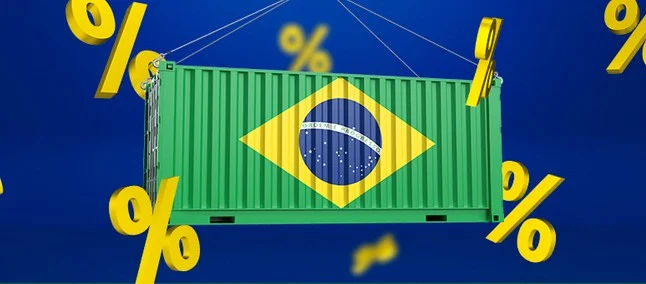By Victor Moraes
The National Confederation of Industry (CNI) annual report indicates that half of the Brazilian exports to China, the European Union, and Argentina are exposed to trade barriers.
Of the US$155 billion exported to these destinations, more than US$78 billion are exposed to barriers.
Joelson Sampaio, Ph.D. in economic theory from the University of São Paulo (USP), explains that this figure represents 26% of the total value exported by Brazil last year.

“In 2022, of the US$155 billion in exports, more than half passed through some kind of barrier, the main ones being in the European Union, China, and Argentina, Brazil’s major trading partners.”
This ends up impacting the balance of trade and the result of companies that tend to deal with these barriers,” he explains.
The main barriers identified include sanitary, technical regulations, taxes, import licensing, and sustainability.
Pork, for example, cannot be exported to the European Union because the local authorities do not recognize the quality and efficiency of the Brazilian sanitary control system.
On the other hand, the orange juice sold to China has an import tariff of 7.5% if the product is cooled to less than 18º C.
If the temperature exceeds 18º C, the import tariff will be 7.5%. If the temperature exceeds this, the tax goes up to 15%.
The manager of Trade and International Integration at CNI, Contanza Negri, says that Brazil needs to find mechanisms to overcome these barriers and expand the market for domestic products.
“Given this scenario, CNI understands that a Brazilian strategy to identify, monitor and eliminate these barriers with the different trade partners is even more necessary.
The industrial sector hopes that the report can contribute with a proactive strategy with these trade partners in international forums and negotiations to ensure greater market access and international insertion of Brazilian exports,” says Negri.
According to Global Trade Alert, Brazil was affected by more than 9,000 trade restrictions between 2009 and 2022.
With information from Jovem Pan

